The Gracchi Brothers: Visionaries or Socialist Revolutionaries?
Who were Tiberius and Gaius Gracchus, and why do their names resonate as pivotal figures in Roman history?
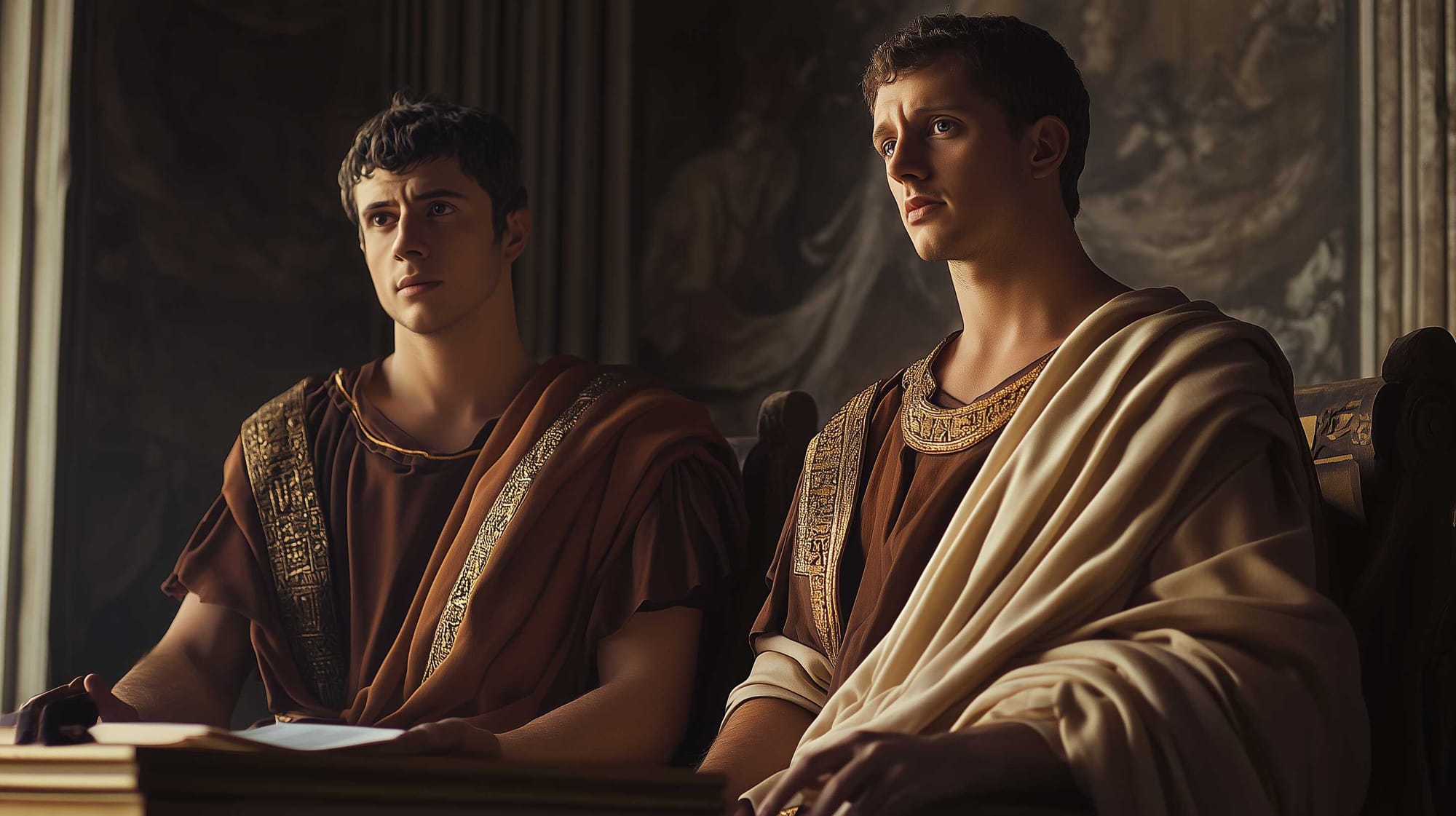
Born into privilege yet drawn to the plight of Rome’s struggling citizens, the Gracchi Brothers sparked debates that would shake the foundations of the Republic. Their story is one of ambition, idealism, and conflict—an era when questions of land, power, and justice were brought to the forefront of Roman politics.
But were their actions those of reformers seeking equity or radicals threatening the established order? As we dig into their lives, we uncover a narrative that continues to raise timeless questions about governance and the costs of challenging the status quo.
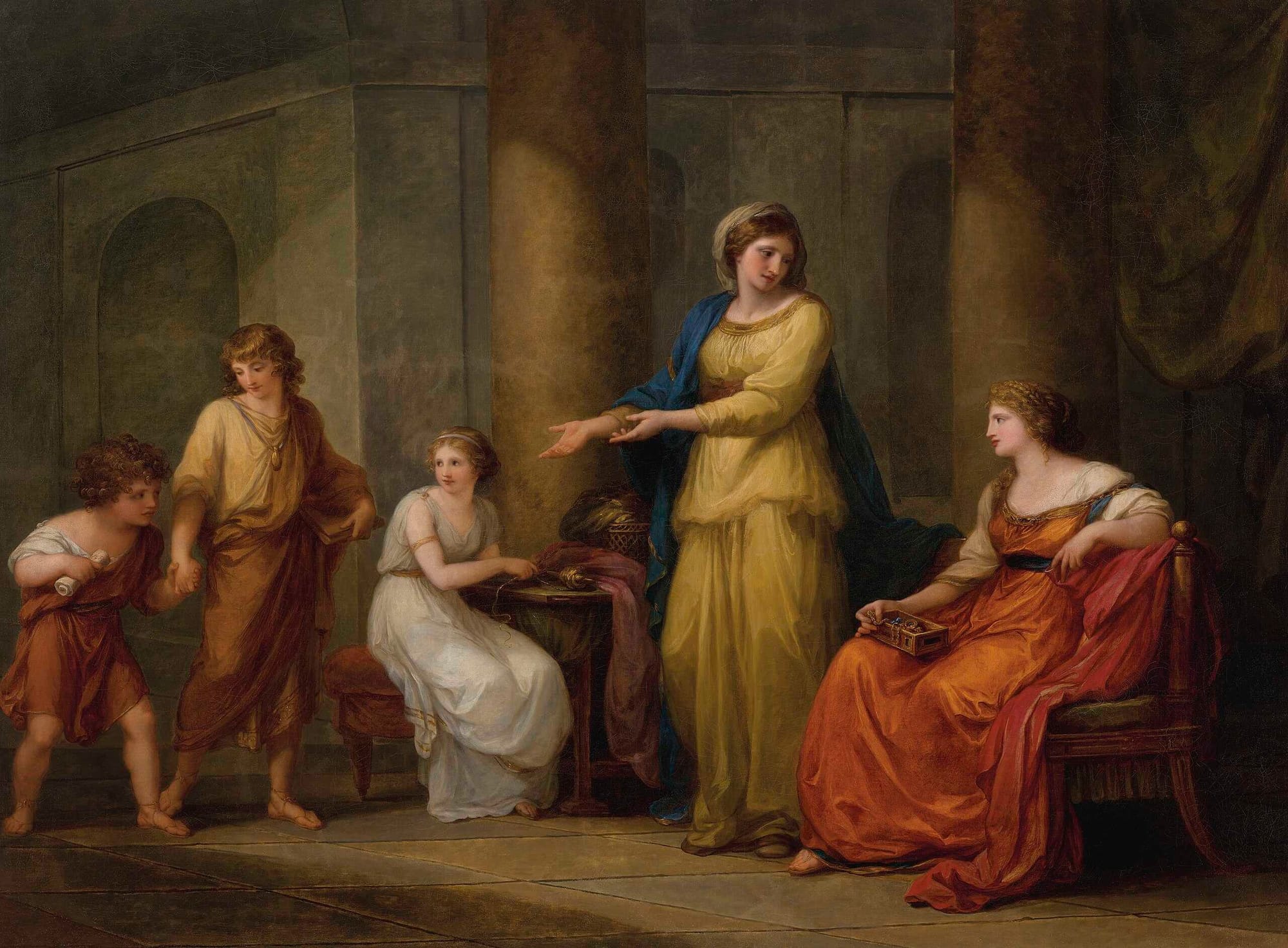
Conservators of Rome or Catalysts of Conflict?
The story of the Gracchi Brothers, Tiberius and Gaius, is one of ambition, reform, and resistance in the Roman Republic. The answer to the question whether they were idealists seeking to restore Rome’s moral and social foundation, or pragmatic politicians navigating an increasingly fractured political system, lies somewhere in between.
Both brothers proposed reforms that challenged the entrenched power of Rome's senatorial elite. Tiberius sought to redistribute public lands to revitalize the dwindling population of free Roman farmers, a group critical for Rome's military and civic life. His agrarian reform was a measured response to systemic problems, yet it sparked fierce opposition, leading to accusations of unconstitutional behavior and ultimately, his violent death.
Gaius expanded upon his brother’s ideas, advocating for broader social and political reforms, including grain laws, infrastructure projects, and a redefinition of the Senate's authority. His ambitious agenda, however, placed him at odds with the ruling elite and ultimately led to his tragic demise.
The brothers’ efforts highlight tensions between tradition and adaptation in a rapidly changing Rome. Were their actions the first stirrings of a populist revolution, or conservative attempts to preserve Rome’s social order? How did their reforms—and the Senate's staunch resistance—shape the trajectory of the Republic?
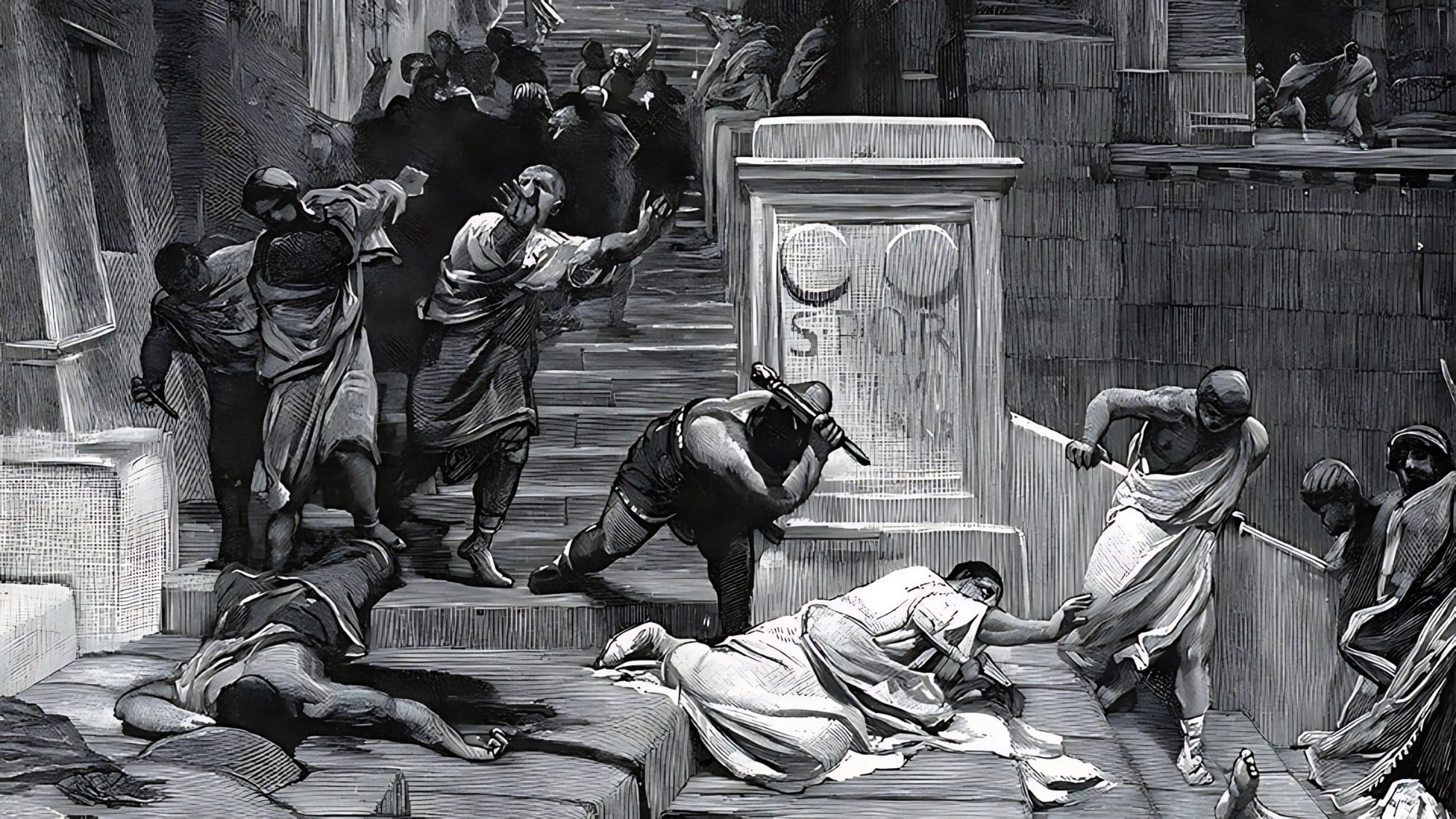
Their legacy prompts timeless questions about the nature of reform and the dangers of unchecked power.
The Death of Tiberius Gracchus, a gravure by Lodovico Pogliaghi. Upscaling by Roman Empire Times
Did the Gracchi sow the seeds of Rome’s eventual fall, or did their opponents’ intransigence push the Republic toward the civil wars that ultimately ended it? By examining their motives, methods, and the reactions they provoked, we gain a window into one of Rome’s most important eras—a time when the city stood at a crossroads between renewal and ruin. (The Gracchi: An Essay in Interpretation, by Solomon Katz)
The State of Rome in the Second Century BCE
During the mid-second century BCE, Rome faced significant social and economic challenges. As Rome expanded its territories, newly acquired land was divided between citizens and allies, with small plots allocated to the poorest for a minimal rent.
However, laws meant to protect small landholders were increasingly ignored, allowing wealthy landowners, many of whom were senators, to acquire large tracts of land. These landowners displaced small farmers, replacing them with slave labor and consolidating their estates into profitable agricultural enterprises.
The shift in land ownership contributed to a host of problems. The displaced rural population migrated to cities, creating a mass of unemployed citizens. This growing economic disparity also weakened the military, as fewer citizens met the property requirements for service. Wealthy elites prioritized their own economic gain, often at the expense of the state’s stability, leading to acute social and political tensions.
Tiberius Gracchus and the Agrarian Crisis
Tiberius Gracchus, elected as tribune of the plebs in 133 BCE, recognized these issues and sought to implement land reform to address them. His lex agraria allowed current possessors of public land to retain a portion while redistributing the excess to landless citizens. While the proposal was modest, it angered the Senate, whose members stood to lose significant holdings.
Rather than submit the bill to the Senate, Tiberius bypassed tradition and presented it directly to the assembly of the People, alienating the ruling class. This decision marked the beginning of a series of confrontations that culminated in Tiberius’ assassination. His actions, while well-intentioned, set a precedent for bypassing Senate authority, further polarizing Rome’s political landscape.
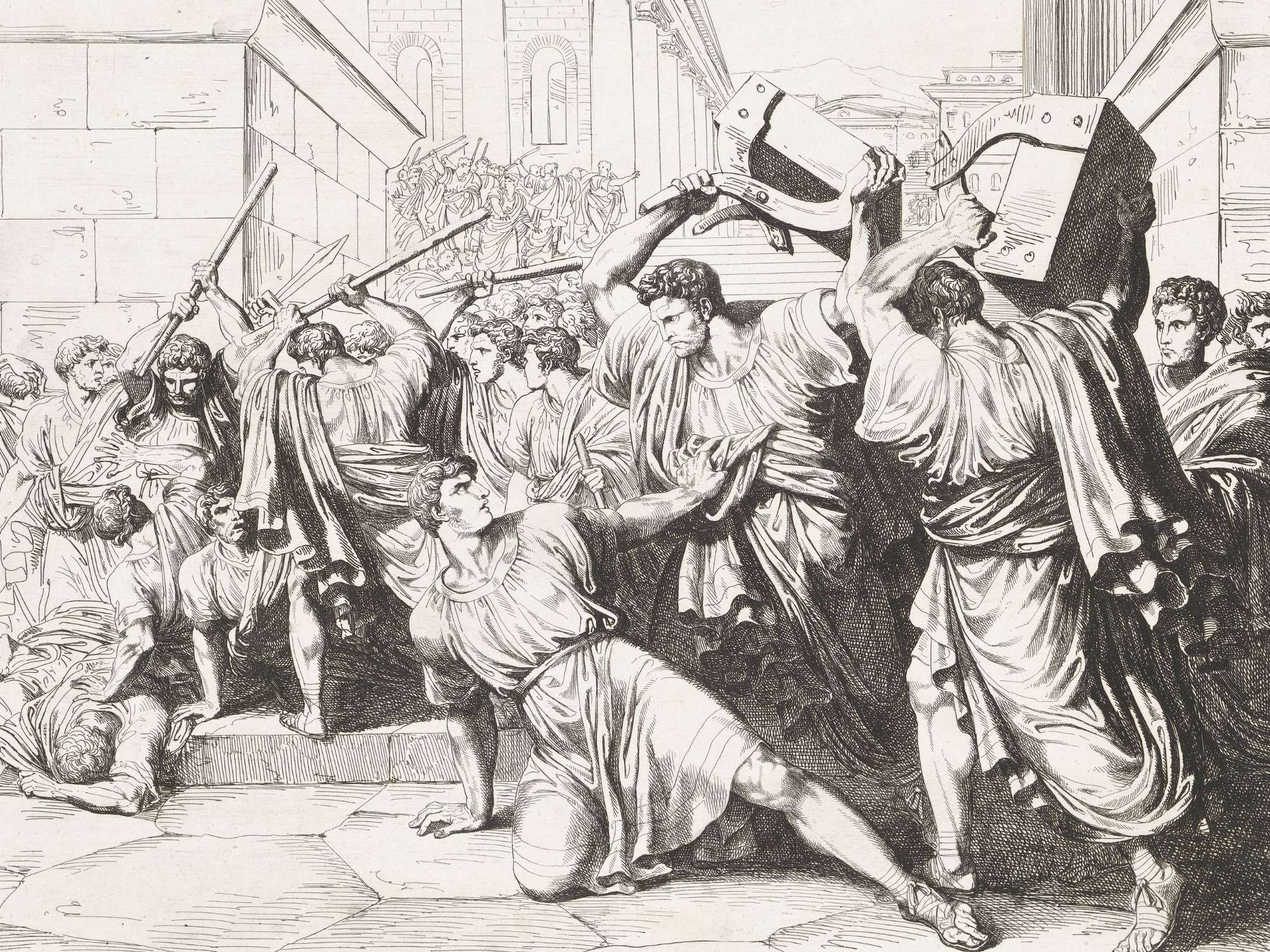
The Eloquence of the Gracchi: Rhetoric as a Catalyst for Reform and Ruin
The Gracchi brothers, Tiberius and Gaius, might be remembered for their bold reforms and the seismic political shifts they initiated in the Roman Republic, yet their legacy cannot be fully understood without acknowledging the pracritical role of their oratory. Their eloquence was not just a tool for persuasion but a driving force that redefined Roman politics and exposed the power—and danger—of rhetoric.
Tiberius and Gaius wielded words as weapons, challenging the entrenched senatorial elite and inspiring the disenfranchised masses. Their speeches, rich in passion and precision, mobilized public opinion in unprecedented ways. Tiberius, with his land reform proposals, painted a vivid picture of a Rome in crisis, appealing to the plight of the rural poor while exposing the greed of the wealthy.
Gaius, even more refined in his rhetoric, expanded the scope of reform, addressing not only agrarian issues but also judicial and economic inequalities. In their hands, oratory became a tool of resistance and reform, but it also ignited fierce opposition.
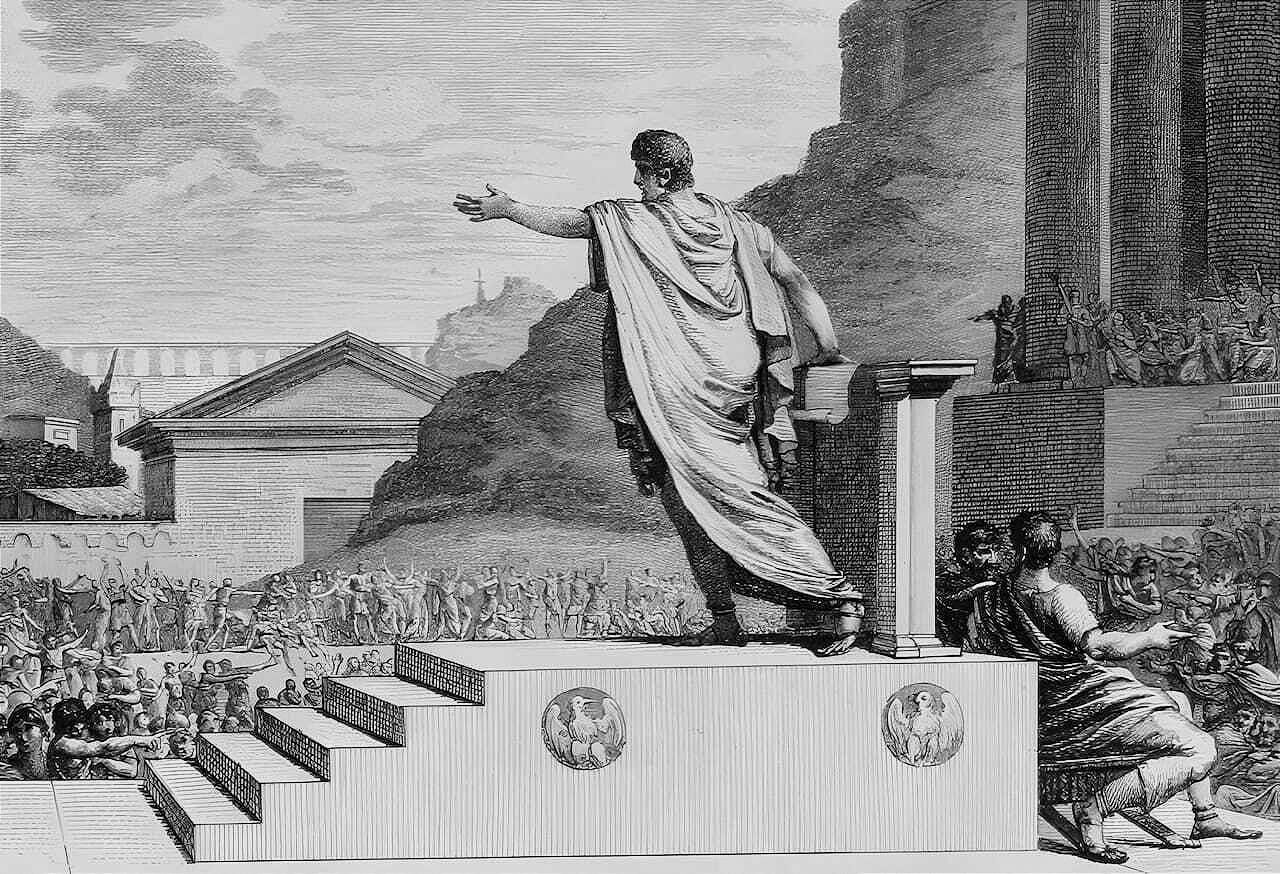
Cicero, in De Oratore, reflects on the ethical dimensions of such powerful rhetoric. The Gracchi, he suggests, demonstrate the dual nature of eloquence: its potential to inspire justice and its propensity to incite division.
While their words rallied support for their causes, they also deepened fractures within the Republic, polarizing the populace and alienating the ruling elite. Cicero critiques their failure to temper their eloquence with prudence; a failure that ultimately led to their tragic downfall.
“Tiberius Gracchus overturned the constitution of the state, a man of such great force of character, and eloquence, and dignity, that he fell short in no respect of the surpassing and eminent virtue of his father, and of his grandfather, Africanus, except in the fact of his revolting from the senate.
Caius Gracchus followed in his steps. How great was his genius! how great his energy! how impetuous his eloquence! so that all men grieved that all those good qualities and accomplishments were not joined to a better disposition and to better intentions.
Lucius Saturninus himself was so furious and almost insane a man, that he was an admirable leader, —perfect in exciting and inflaming the minds of the ignorant.
For why should I speak of Publius Sulpicius? whose dignity, and sweetness, and emphatic conciseness in speaking was so great that he was able by his oratory to lead even wise men into error, and virtuous men into pernicious sentiments.
To be battling with these men, and to be duly struggling with them for the safety of the country, was a very annoying thing to those men who were at that time the governors of the republic, but still that annoyance had a certain sort of dignity in it.”
Cicero, De Oratore
The story of the Gracchi underscores the transformative power of rhetoric in shaping political discourse. Their mastery of oratory was both their greatest strength and their undoing, setting a precedent for the use of persuasive speech in Roman politics.
Yet, it also serves as a cautionary tale of the ethical responsibilities that come with wielding such influence. In their pursuit of reform, the Gracchi illuminated the capacity of words to reshape societies, for better or for worse—a legacy that remains relevant in political spheres to this day. (A Faded Reflection of the Gracchi: Ethics, Eloquence and the Problem of Sulpicius in Cicero's de Oratore, by Louise Hodgson)
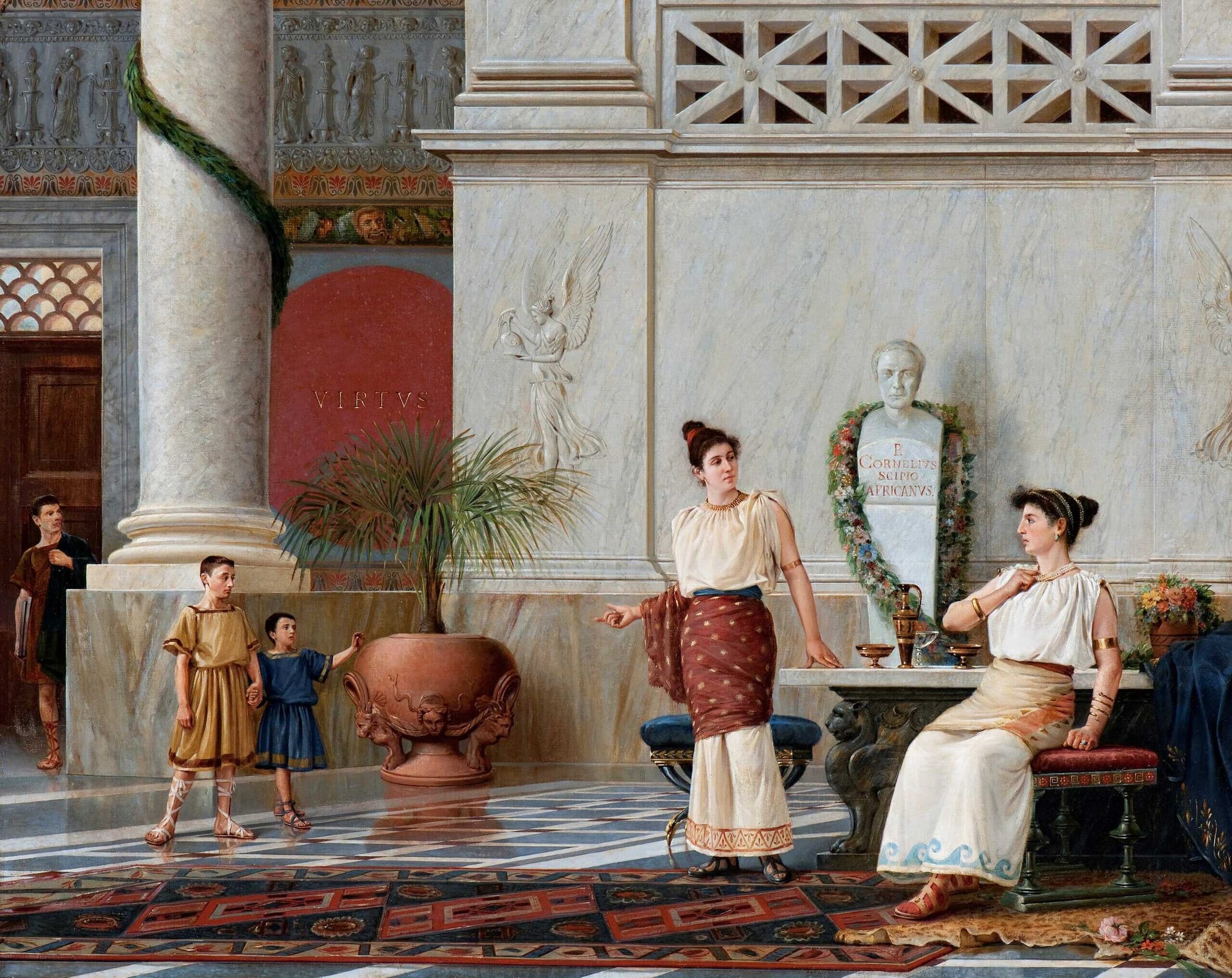
The Gracchi Brothers and the Land They Could Not Reform: A Prelude to Rome's Collapse
As we have thoroughly illustrated, the story of Tiberius and Gaius Gracchus is deeply intertwined with Rome’s shifting socio-economic landscape in the second century BCE. As grandsons of Scipio Africanus, they sought to address the widening inequality caused by the concentration of wealth and land in the hands of the elite, particularly the vast latifundia estates worked by slaves.
Their aforementioned land reform policies aimed to redistribute public land (ager publicus) to Rome's dispossessed citizens, restoring the ideal of the small farmer as the backbone of the Republic. These reforms faced significant obstacles: aristocrats, who had long exploited legal loopholes to expand their holdings, fiercely resisted losing their lands.
Despite promises of compensation, the elite viewed the Gracchi’s initiatives as revolutionary, even treasonous. The brothers bypassed traditional Senate approval, appealing directly to the People, further antagonizing the senatorial class.
Tiberius’ proposal, while addressing Rome’s socio-economic crises, also unveiled the fragility of the Republic's political system. The reliance on cheap slave labor not only displaced free citizens but also undermined the Republic's military foundation, as landless citizens were ineligible for military service. The Gracchi's reforms sought to revive the class of landowning citizen-soldiers, aiming to restore the values that had once defined Roman greatness.
Ultimately, their tribuneships marked the beginning of an era of political violence that would plague Rome. Tiberius’ assassination set a dangerous precedent for resolving political disputes through bloodshed, a practice that escalated in the decades leading to the Republic’s downfall.
Gaius’ later reforms faced similar resistance, culminating in his tragic death. Their legacy underscores the inherent tension between wealth and traditional Roman values, a conflict that the Republic was ill-equipped to reconcile. (Brothers in Law: The proposed Gracchan Land Reform of The Second Century BCE and The Environment of Growing Social inequality, by Michael Leess)
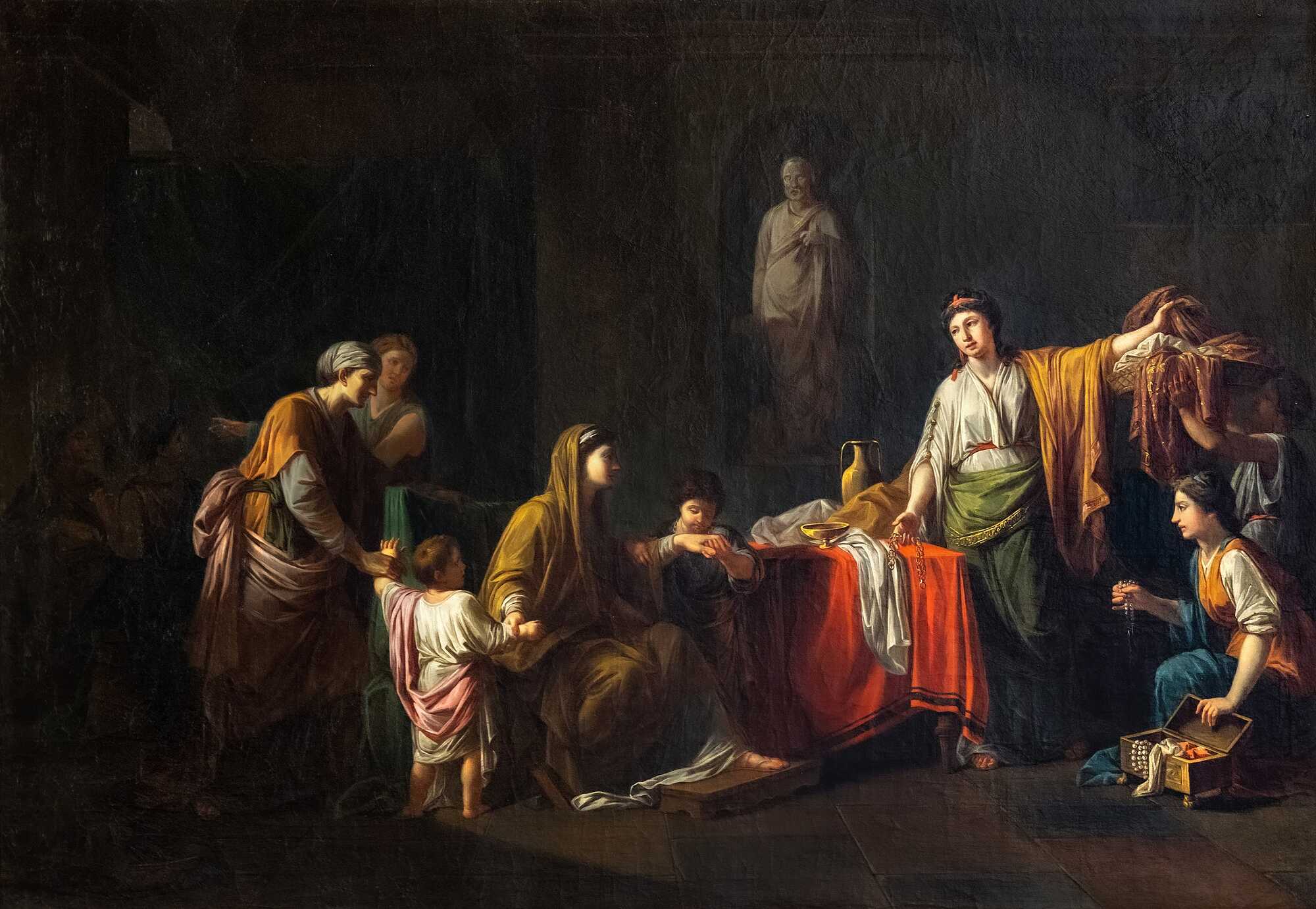
The Gracchi Brothers and the Fate of Rome: A Study in Alternate Choices
An Alternate Path: Tiberius’ Strategic Choices
Brad Weiler explores an alternate history where the Gracchi's strategies and outcomes differed, examining whether their reforms could have averted the eventual collapse of the Republic.
In an alternate scenario, Tiberius could have chosen to work within traditional structures by presenting his reforms to the Senate. Although many senators were opposed to the lex agraria, Tiberius had notable allies within the Senate, including Appius Claudius Pulcher and Publius Mucius Scaevola. By engaging the Senate in dialogue and leveraging his rhetorical skills, he might have secured enough support to enact the reforms without provoking violence.
In this alternate timeline, the land redistribution proceeds with Senate approval, avoiding the impeachment of Tiberius’ colleague Octavius and preserving the integrity of the tribunate. Additionally, Tiberius refrains from running for re-election as tribune, recognizing the potential for conflict.
Instead, he focuses on his work as part of the land commission, continuing the redistribution of land with funding from the estate of Attalus III of Pergamum, which is allocated with Senate cooperation. By adhering to established traditions, Tiberius maintains a less contentious relationship with the Senate and secures broader support for his reforms.
Gaius Gracchus and the Continuation of Reform
In this alternate scenario, Gaius Gracchus follows his brother’s legacy but faces a less hostile environment when he enters office in 123 BCE. Without the violent precedent set during Tiberius’ tenure, Gaius is able to implement his reforms with greater stability. His measures, including the lex frumentaria and judicial reforms, strengthen the position of the lower classes without directly antagonizing the Senate.
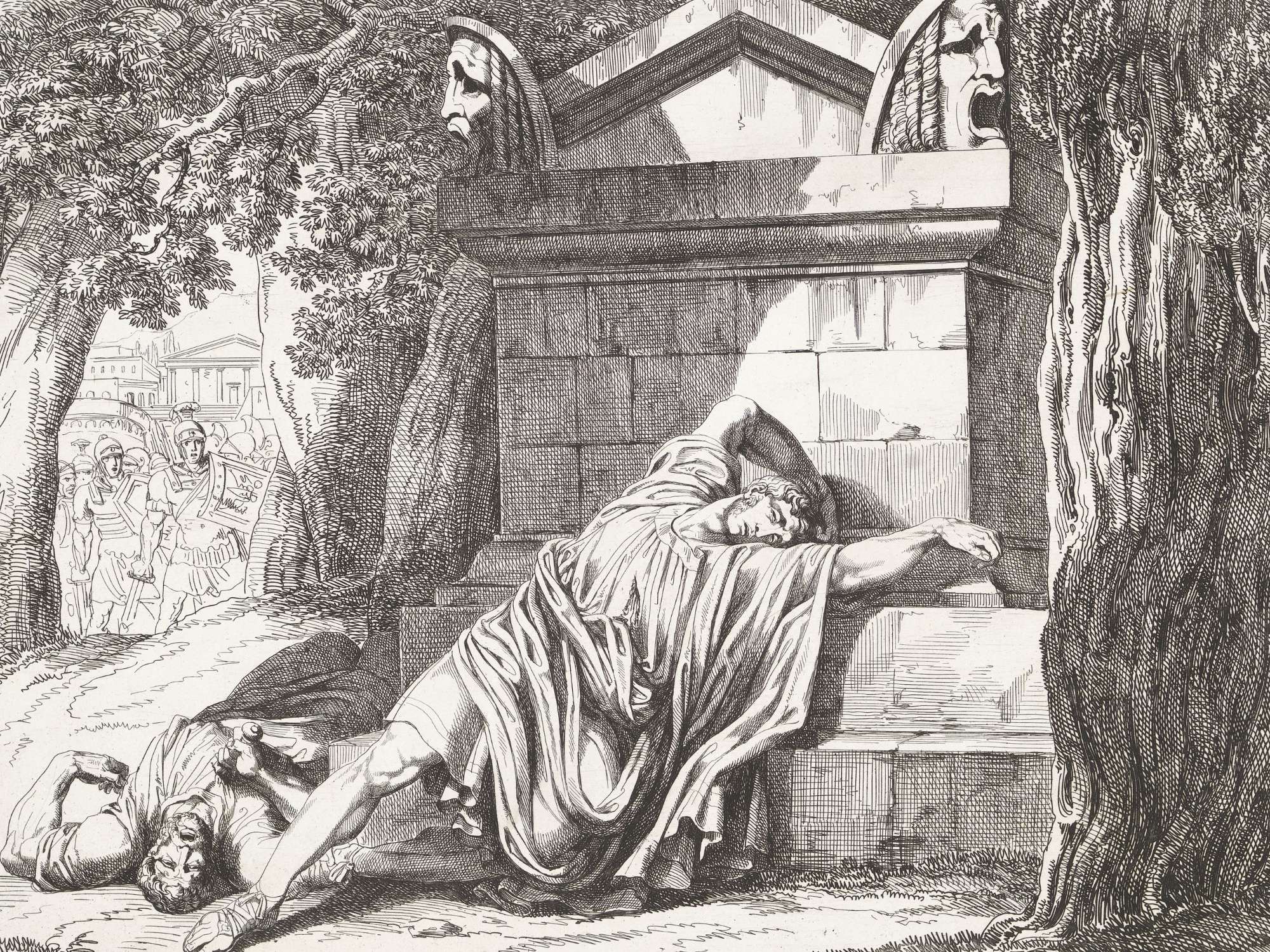
Was the Fall of the Republic Unavoidable?
Even with these alternate choices, it is unlikely that the Republic’s collapse could have been entirely prevented. The systemic issues facing Rome—economic inequality, reliance on slave labor, and a rigid political structure resistant to change—would have persisted.
While the Gracchi’s reforms might have delayed the Republic’s decline, they could not address the deeper forces driving its transformation into an empire. Nevertheless, their story highlights the potential impact of individual decisions within the broader sweep of history.
The Brothers and the Inevitable Fall of the Roman Republic
The story of the Gracchi brothers, Tiberius and Gaius, serves as a pivotal moment in Roman history, one that showcases both their reformist ambitions and the inherent flaws of the Roman Republic. Tiberius’ proposed land reforms, which sought to redistribute public lands to Rome’s impoverished citizens, challenged the Senate’s dominance and triggered political violence that set dangerous precedents for Rome.
Tiberius Gracchus is portrayed as a reformer who might have succeeded in redistributing land peacefully had he navigated Senate politics more prudently. By presenting his land reforms to the Senate rather than bypassing it, Tiberius could have avoided antagonizing the ruling elite, thereby securing their cooperation or at least mitigating hostility.
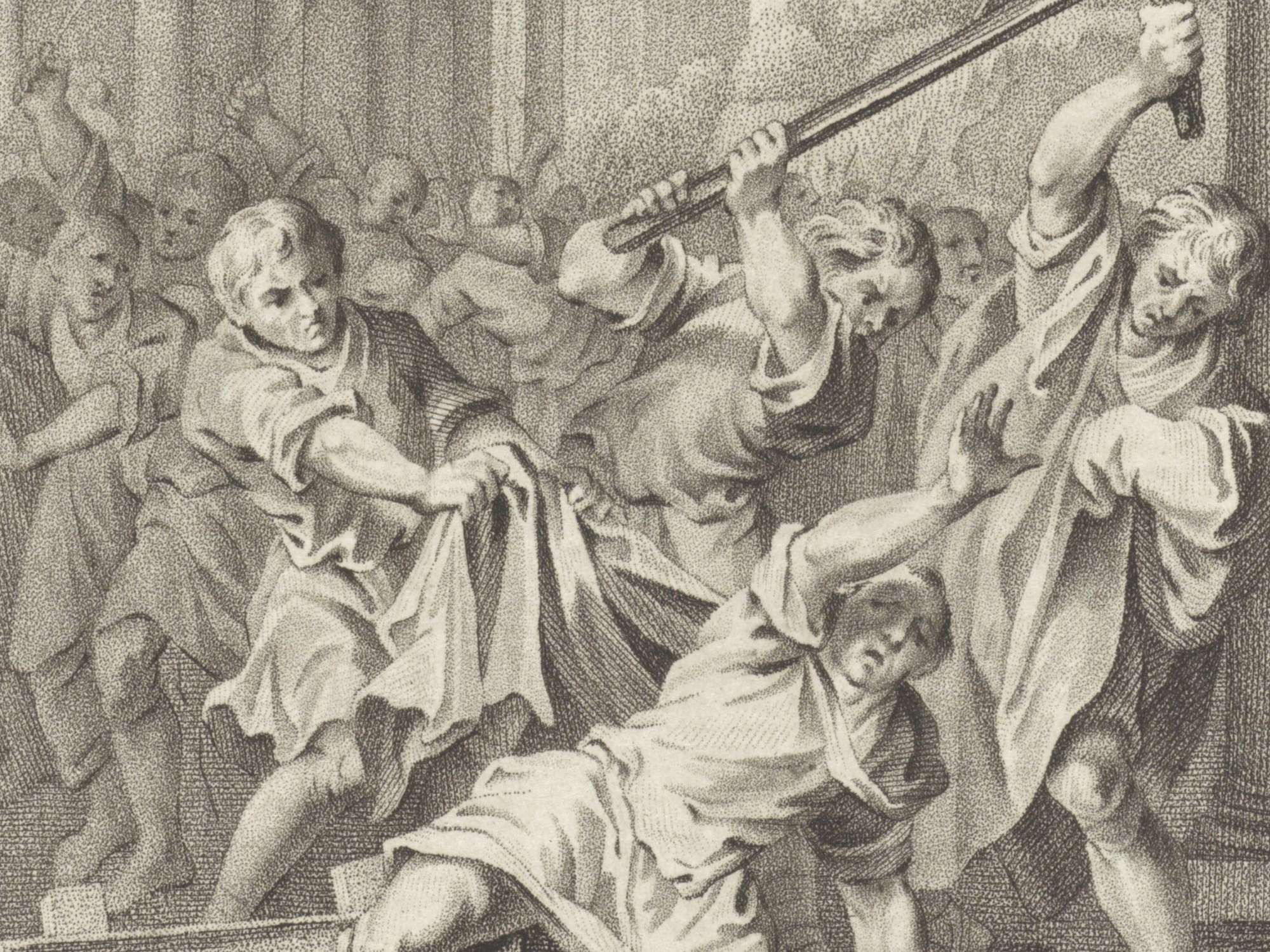
With Senate approval, his reforms might have strengthened Rome's social and military fabric, pulling impoverished citizens out of urban destitution and replenishing the army's recruitment pool.
Part of a drawing from Jacobus Buys, depicting Tiberius Gracchus’ death. Public domain
Similarly, Gaius Gracchus emerges in this alternate narrative as a more temperate leader, unaffected by the tragic demise of his brother. Without the cloud of vengeance over his career, Gaius is envisioned as a practical reformer who worked within the political system to introduce laws benefiting Rome’s citizens.
His proposals for food distribution, road construction, and judicial reforms were all aimed at improving the livelihoods of the Roman populace while addressing systemic corruption. However, Gaius’ tenure as tribune might still have faced challenges, as the entrenched attitudes of the Senate and ruling class likely would have resisted significant shifts in power.
Despite the hypothetical success of the Gracchi reforms, the long-term trajectory of the Republic appears doomed. The systemic issues facing Rome—economic disparity, the disenfranchisement of Italian and Latin allies, and the rise of personal armies loyal to individual generals—were beyond the control of the brothers.
The oligarchic Senate’s refusal to adapt to changing times and their self-serving actions, such as dismantling the Gracchan reforms after their deaths, exacerbated tensions that culminated in civil wars and the eventual rise of autocratic rule.
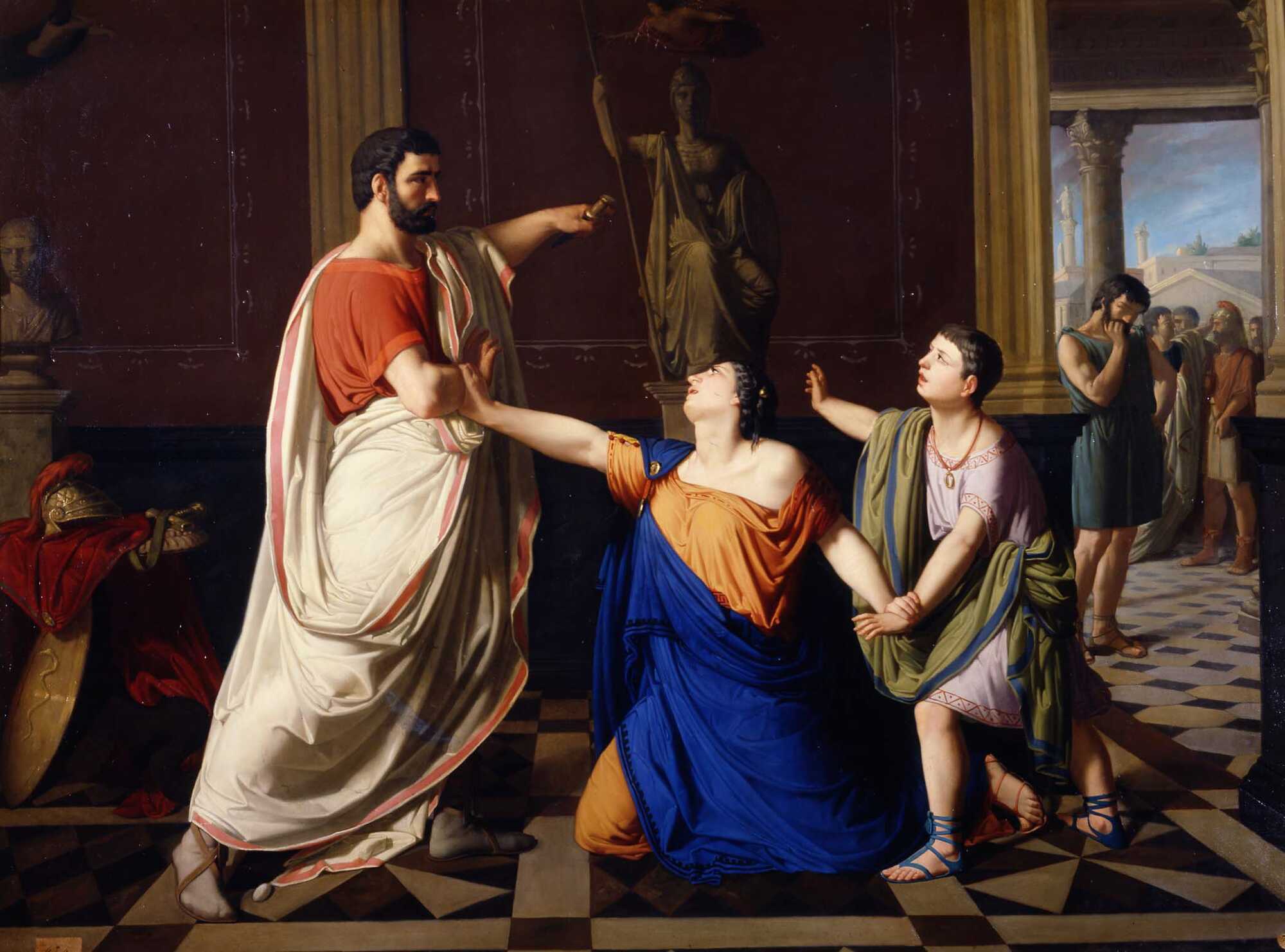
Brad Weiler concludes that the Gracchi’s efforts, even if executed flawlessly, could have only delayed the inevitable. The Republic’s decay was rooted in the greed and resistance of its ruling elite, as well as external pressures like prolonged wars and the Social War.
The Gracchi brothers, while reformers of great vision and ambition, were ultimately victims of a larger systemic collapse, mere sparks in a Republic already smoldering with instability. Their story underscores the complexities of reform in a resistant system and the limitations of individual influence in the face of entrenched power. (The Gracchi: Could they Have Prevented The Downfall of The Roman Republic?, by Brad Weiler)
The Gracchi Brothers: Proto-Socialists or Populist Symbols?
Long after their deaths, the legacy of the brothers continued to echo through political history. Figures as diverse as François-Noël Babeuf during the French Revolution and Theodore Roosevelt in early 20th-century America invoked or paralleled the ideals and challenges faced by Tiberius and Gaius Gracchus.
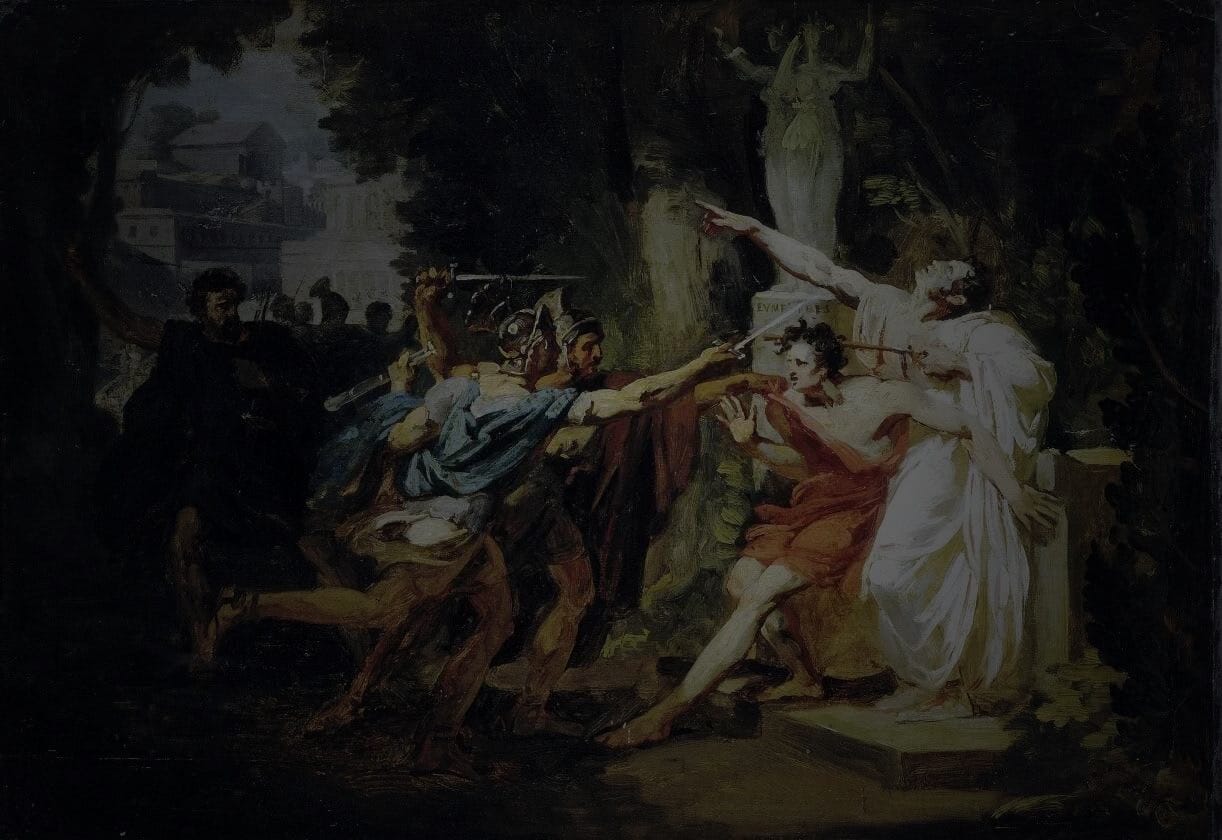
This enduring influence begs the question: were the Gracchi proto-socialists, or have their lives and actions merely been reinterpreted to suit varying populist agendas?
A painting from Félix Auvray, depicting the death of Gaius Gracchus. Credits: GrandPalaisRmn / René-Gabriel Ojeda / Thierry Le Mage
François-Noël Babeuf, who adopted the moniker “Gracchus Babeuf,” drew heavily on the symbolism of the brothers during his advocacy for radical social reforms in revolutionary France. Babeuf’s ideas of economic collectivism and the redistribution of resources were far more radical than anything the Gracchi proposed.
Saskia T. Roselaar (one of the most respected experts in the Gracchi brothers and their reforms) points out that while Babeuf championed the abolition of private property, such an idea would have been anathema to Tiberius and Gaius. Their focus was on pragmatic land reforms aimed at alleviating economic disparity, not on restructuring the entire socioeconomic order.
Nonetheless, Babeuf and other revolutionaries used the Gracchi as emblematic champions of the common people against an entrenched elite. Babeuf’s “Conspiracy of Equals” and his rhetoric on economic equality echoed the sense of struggle and defiance the brothers embodied. Yet, as Roselaar emphasizes, this appropriation of their image often veered into myth-making, overshadowing the historical reality of their policies.
In a very different context, the American president Theodore Roosevelt was likened to Tiberius Gracchus by contemporary commentators like Charles S. Dana. Both men, born into privilege, took up causes perceived as populist—Tiberius through land redistribution, and Roosevelt by challenging corporate monopolies and advocating for workers’ rights.
Dana noted their shared zeal, moral fortitude, and occasional impatience with institutional restraints. However, the parallels, while intriguing, reflect more on the timeless challenges of reformers grappling with entrenched systems than on any direct ideological lineage. (Theodore Roosevelt and Tiberius Gracchus, North American Review, by Charles S. Dana)
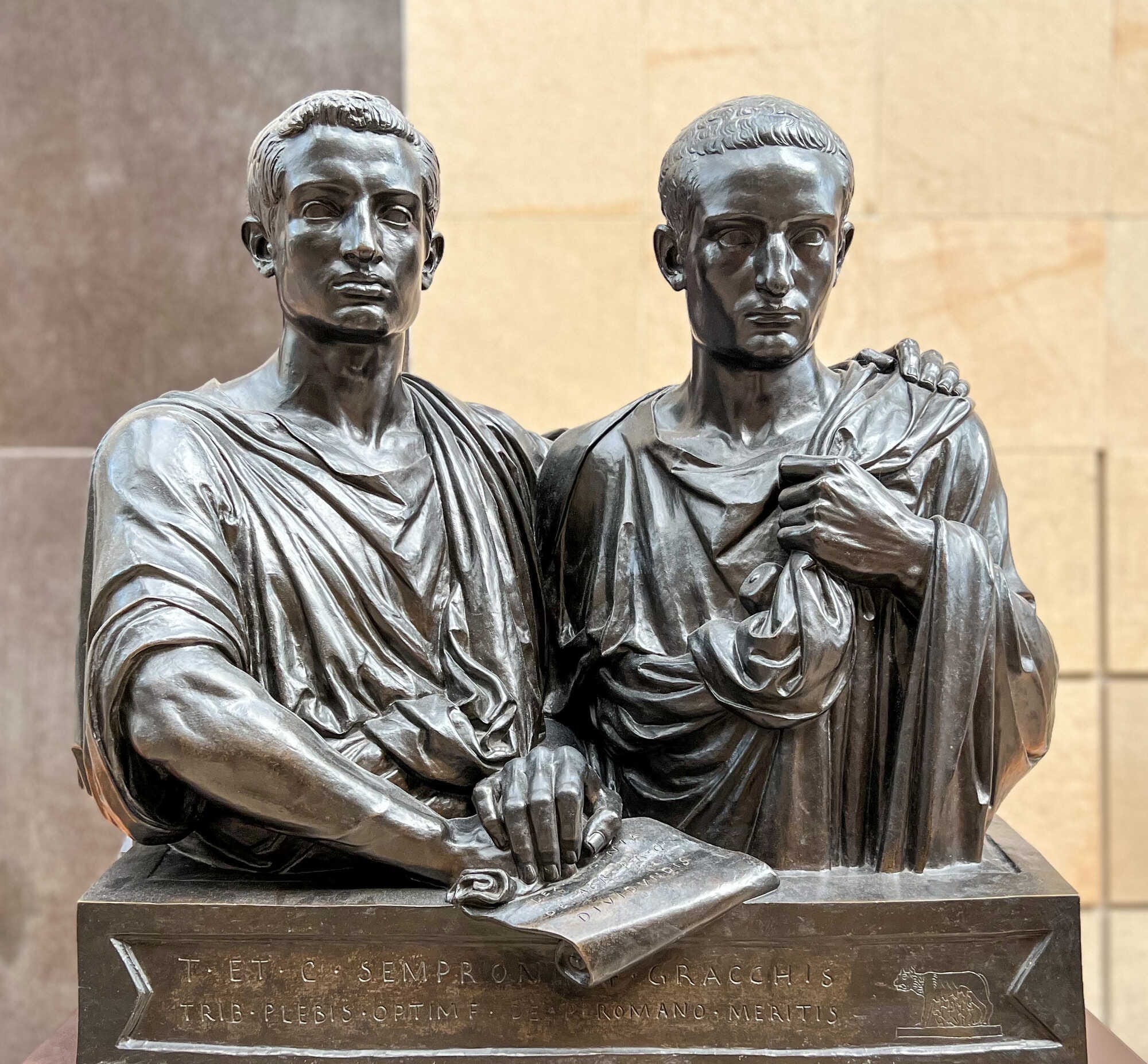
The portrayal of the Gracchi as early socialists is largely a construct of later thinkers looking to them for inspiration.
The brothers Tiberius and Gaius Gracchi by Eugene Guillaume, 1853. Credits: Cocoabiscuit, CC BY-NC-ND 2.0
While their reforms aimed at addressing economic inequality and empowering Rome’s dispossessed citizens, they operated within the framework of the Republic, not against it. Their legacy lies in their courage to challenge the status quo and the violent resistance they met—an archetype of reformist struggle that resonates across eras.
The Gracchi’s continued relevance highlights the ways historical figures can be reinterpreted and adapted to suit modern narratives. Whether invoked by Babeuf’s socialist revolutionaries or as analogies in debates over corporate power, their story serves as a potent reminder of the perennial tension between reform and resistance in the face of societal inequality.


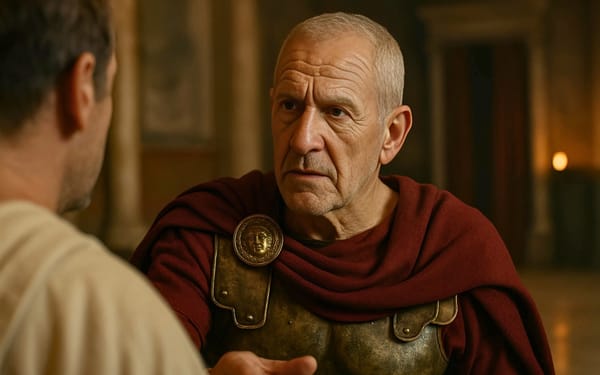
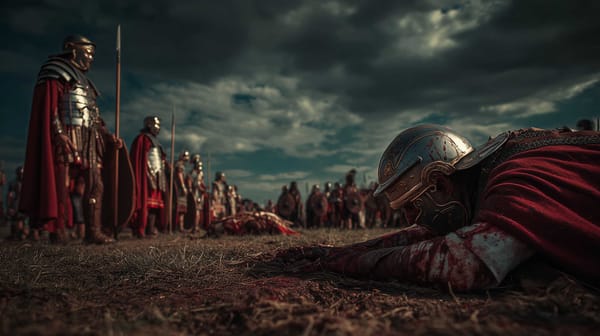
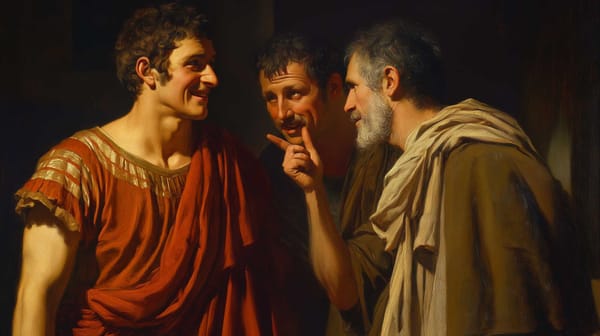
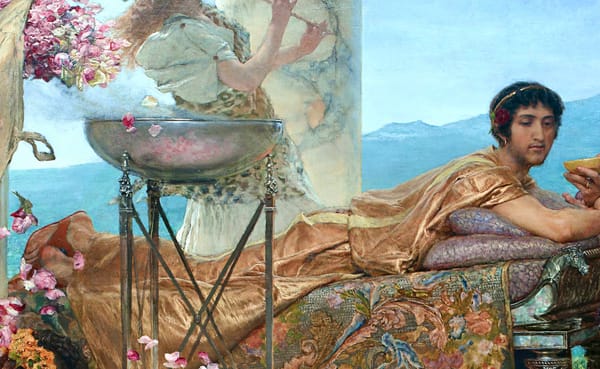
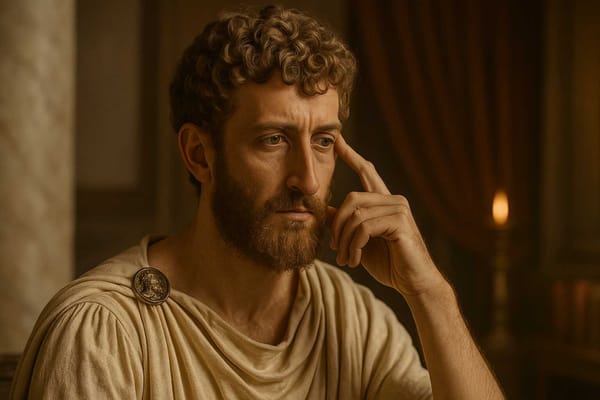
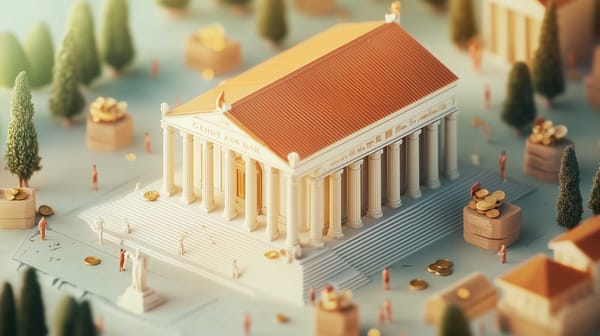
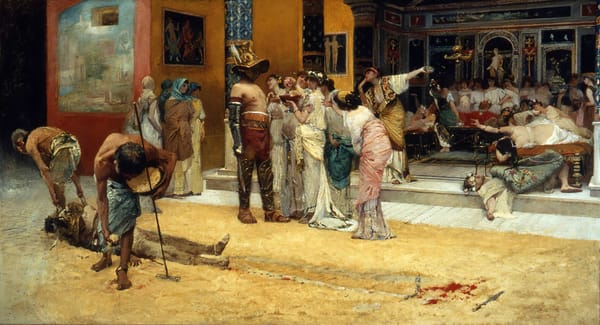
About the Roman Empire Times
See all the latest news for the Roman Empire, ancient Roman historical facts, anecdotes from Roman Times and stories from the Empire at romanempiretimes.com. Contact our newsroom to report an update or send your story, photos and videos. Follow RET on Google News, Flipboard and subscribe here to our daily email.
Follow the Roman Empire Times on social media: